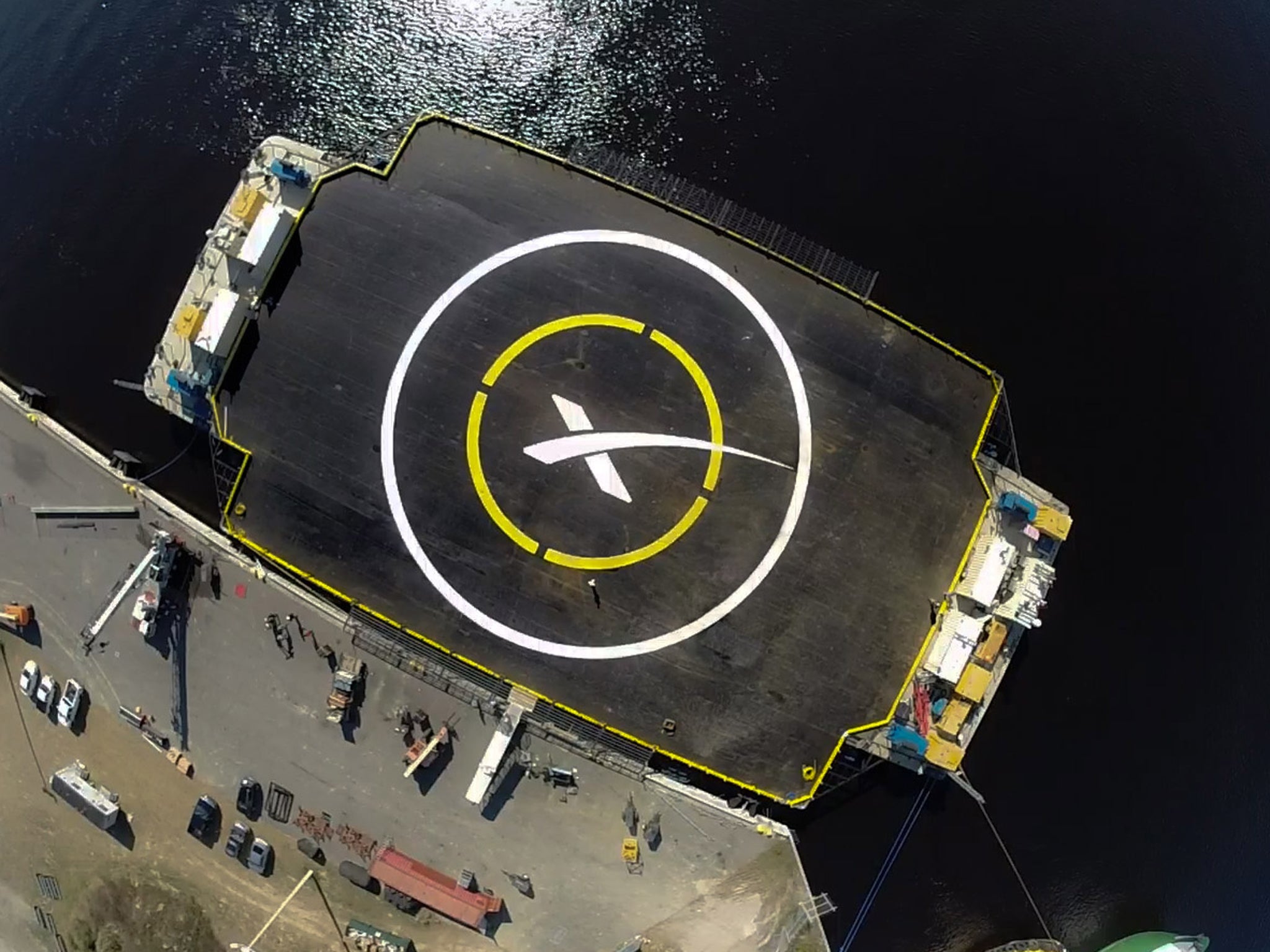SpaceX scraps rocket launch, to try again on Wednesday
Elon Musk’s reusable rocket will try to take off again tonight, when excellent weather is forecast

SpaceX had to pull plans to launch a rocket that it would then try to land on a barge last night, after high winds made the attempt too dangerous.
Elon Musk’s private space agency called off the launch with 12 minutes left in the countdown last night. Up to 115 mph winds were detected several miles above the Earth, which could have damaged the rocket on its flight.
"Extreme wind shear over Cape Canaveral," SpaceX's founder and chief executive Elon Musk warned via Twitter a few hours before Tuesday's try. "Feels like a sledgehammer when supersonic in the vertical. Hoping it changes."
The company will try again tonight, with the launch scheduled for just after 11pm GMT. Excellent weather is forecast.
If the company has to call of the launch once more, it won’t be able to try again until February 20.
It is the third time the company has tried and failed to launch the rocket. The first attempt, on Sunday, was called off because of radar trouble and Monday’s try was called off because of rain.
Those attempts follow a spectacular failure to land the rocket last time around, when it came in too fast and blew up on the barge.
The launch is important to the company because if the rocket is landed successfully it could be the beginning of reusable rockets — which could hugely reduce the cost of space travel.
Once aloft, the observatory the rocket is carrying, dubbed DSCOVR, will fly to a point 1 million miles from Earth in direct line with the sun to watch for incoming geomagnetic storms that could trigger power outages on Earth. This so-called Lagrange point, located 92 million miles (148 million kilometers) from the sun, would provide as much as a one-hour lead time to prepare for potentially disruptive solar outbursts.
In addition, DSCOVR will provide a steady stream of pictures of the entire sunlit side of Earth. It was Gore's idea in 1998 to provide continuous views of Earth from afar that led to this space weather satellite. There was no immediate confirmation as to whether Gore returned for the launch attempt Tuesday as expected.
U.S. Sen. Bill Nelson said from Washington that there hasn't been a full, sunlit picture of the Earth since Apollo 17 in 1972 — NASA's last manned moon-landing mission. Subsequent images have been stitched together, he noted, for composite shots.
The $340 million DSCOVR mission began as Gore's Triana, named after the lookout who first spotted land on Christopher Columbus' voyage to the New World. It was canceled for political reasons, however, and the spacecraft put in storage in 2001. NASA and NOAA resurrected it several years later and made the sun its primary mission, with Earth-gazing a secondary objective.
In a repeat of a ground-breaking experiment, SpaceX will fly its leftover first-stage booster to a platform floating 370 miles off the Florida coast. Last month's test came close, but ultimately failed; the booster ran out of hydraulic fluid for the guidance fins, landed hard and tumbled into the Atlantic in flames.
Additional reporting by Facebook
Join our commenting forum
Join thought-provoking conversations, follow other Independent readers and see their replies
Comments
Bookmark popover
Removed from bookmarks